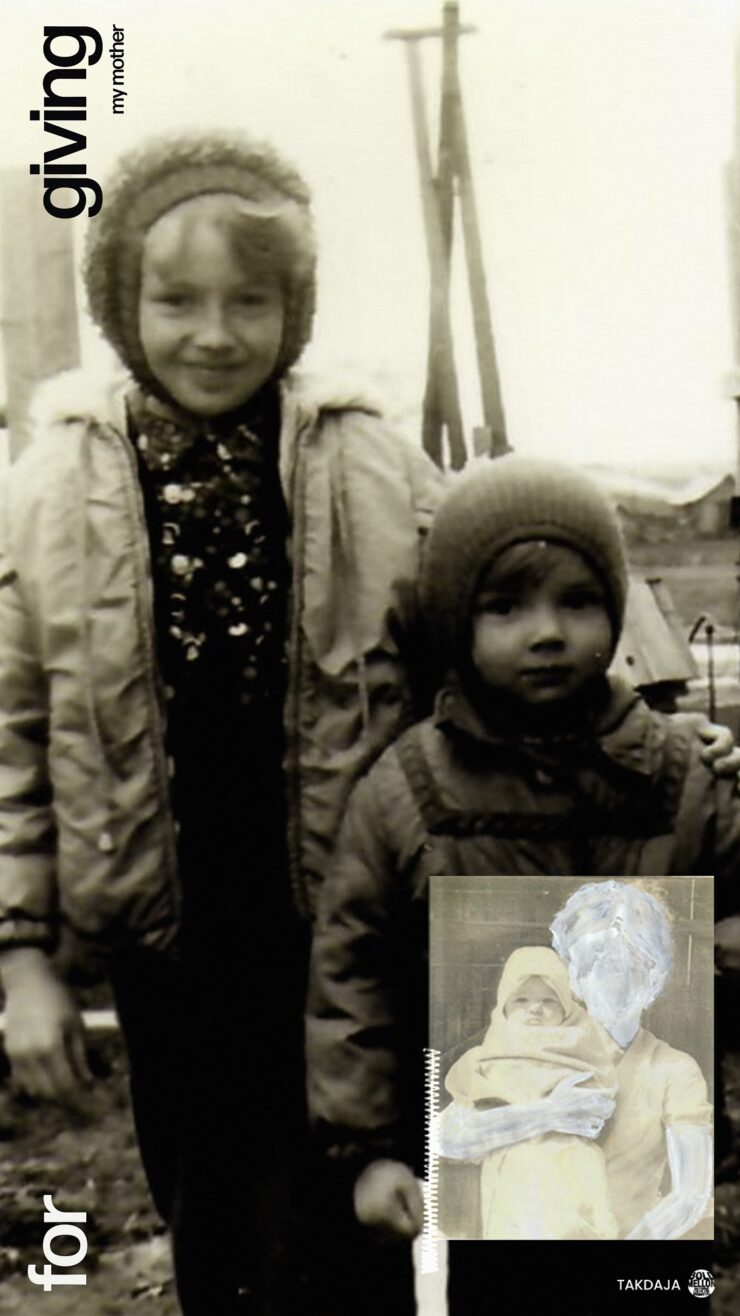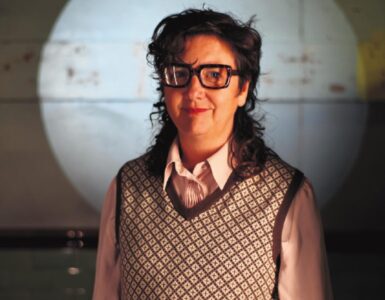A team of multidisciplinary artists in London are offering up what they hope to be a thought-provoking exploration of what constitutes meaningful theatre this month. This comes alongside a presentation of how ‘determinism’ might provide the means for us to move forward as a society. The show, entitled Forgiving (My Mother), uses the framing device of two performers devising a play about siblings tangled in a complicated web surrounding the concept of forgiveness.
We caught up with Pat Dynowska of TAKDAJA, Emilia Nurmukhamet of Bold Mellon Collective, and Anna Udras of Self Help Production, the trio behind the piece, for a pixelated pint where we chatted all things determinism, devising, and immigrant-led theatre.
You can catch Forgiving (My Mother) at The Glitch in Waterloo from January 23rd-24th at 19:00. Tickets are available online.
Jake: Hi Anna, Pat & Emilia – your new show Forgiving (My Mother) seems to have a bit of a meta-theatrical take, exploring ‘determinism’ – can you tell us what you mean by that and why you decided to create the piece?
A, P & E: Hello, Jake. Thank you for your interest and time. The initial idea for the play sparked from reflecting on something we can all relate to – conflicts with our parents. Determinism in this case comes in handy when approaching how we see the actions of those who raise us and make us who we are but also often make us hurt the way no-one else can. When we recognise the lack of one’s agency over their actions – because according to determinism all of our actions are predetermined by previously existing causes, the relationship to the initial cause of hurting shifts in a beautiful liberating way. By adopting this meta-theatrical approach, we aim to invite the audience to reflect on their own lives and the forces that may be shaping them.
Jake: You’re trying to explore what makes ‘meaningful theatre’ in that context – tell us what you’re hoping the audience might take away from it all.
A, P & E: One of the reasons this piece came into creation was the realisation that theatre is currently oversaturated by narratives that no longer seem progressive enough or attempting to push thought forward in a way that is beneficial. So this is what we aim to challenge, because the idea that we are putting across causes debate and invites discussion, we want to give our audience new food for thought.
Jake: Within the framing device the piece follows two siblings deciding whether or not to forgive their mother – tell us about the process of creating this, the trials and tribulations you have faced.
A, P & E: The plot line of the sisters is based on the dialogue that Anna (the Director) once had with her younger sister, it was a very interesting process for us to marry together this very personal piece of writing with the characters of Pat and Emilia who are practically playing themselves. Finding moments where they relate or disagree with their characters of Anna and Liza respectively, and looking for techniques that would take the audience on that journey with them was very rewarding, and resulted in bring a unique element to this piece – the feeling of ongoing exploration.
Jake: Tell us a little about your background and how it fits into creating this piece.
A, P & E: We are a group of first generation immigrants from Eastern Europe, which was always going to be a big influence in creating this piece. Being brought up in a post-Soviet parenting style served as an inexhaustible source of inspiration. All three of us had our interests in theatre rooted in political theatre, the core of which has always been change, so coming together to make a play that is aiming to shift and affect was a task we were all happy to be challenged with.
Jake: Given the themes of Binge Fringe, if your show was a beverage of any kind (alcoholic, non-alcoholic – be as creative as you like!), what would it be and why?
A, P & E: Probably a warm cup of tea, with some honey and a spritz of lemon but also with a droplet of rum, to spice things up.









